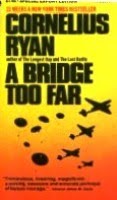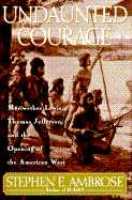A Bridge Too Far: The Classic History of the Greatest Battle of World War II by Cornelius Ryan gives one of the best accounts of General Montgomery's ill-fated plan and operation to turn the German northern flank on the Western front during September 1944 of World War II. Montgomery hoped to press into the heart of industrial Germany to end the war in 1944. This narrative non-fiction work by Cornelius Ryan brings together the objectivity and insights of a historian with the narrative style of a novelist. Ryan brings historical events to life. Ryan's writings keep your interest. He gives the experiences of the individual soldiers and Dutch resistance members. He tells the story from all sides. The roles and effects of these operations on the civilians unfortunate enough to be caught up in events are included.
From reading Ryan's work I found a dramatic lack of urgency on the part of the British. An example is after the 82nd had secured their main bridge objective which included tremendous sacrifice the British simply camped for the night brewing their tea while their fellow countryman were still encircled and dying in Arhen. I was disappointed that Montgomery was not slammed for this operation. From he account Montgomery is lucky he wasn't relieved of command or sacked on the spot.
I recommend the book, tough at times I found the reading and the story slowly unfolding. It is one of the all time classics of World War II and should be in the library of every military history buff. Read and reviewed by Jimmie A. Kepler.








